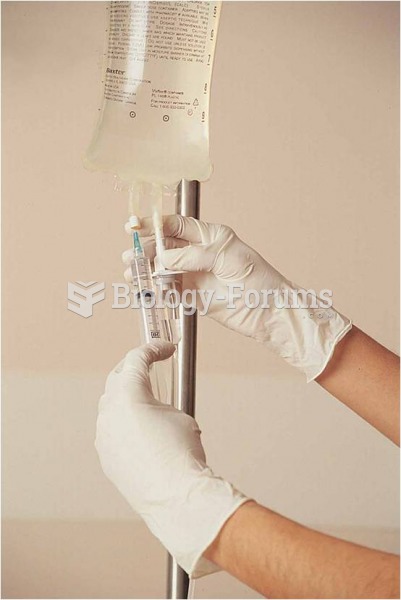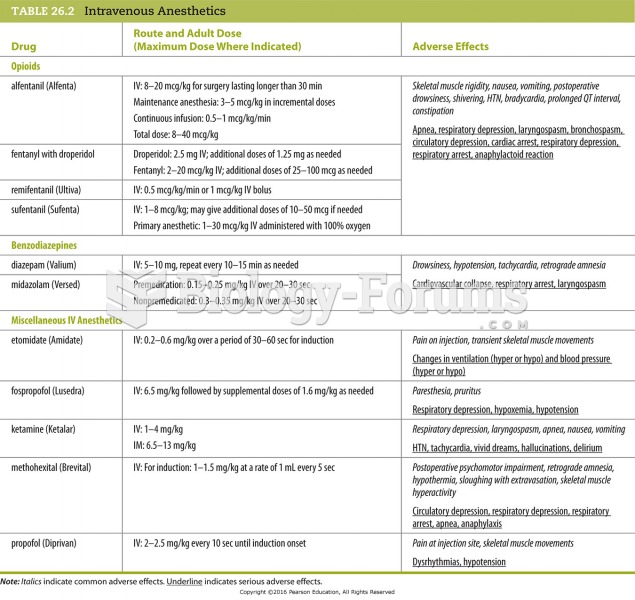Answer to Question 1
3
Rationale 1: Central lines are preferred for some medications, but this is not the priority.
Rationale 2: The nurse should wear gloves, but this is not the priority.
Rationale 3: Before giving this medication, the nurse must be prepared for the eventuality of extravasation by knowing the protocol and having protocol supplies available.
Rationale 4: The nurse may need to wear a mask, depending on the drug. This is not the priority answer from those provided.
Global Rationale: Before giving this medication, the nurse must be prepared for the eventuality of extravasation by knowing the protocol and having protocol supplies available. Central lines are preferred for some medications, but this is not the priority. The nurse should wear gloves, but this is not the priority. The nurse may need to wear a mask, depending on the drug. This is not the priority answer from those provided.
Answer to Question 2
4
Rationale 1:One tablet orally four times per day is incorrect because bid is the medical abbreviation for twice per day and qid would be the abbreviation for four times per day. The Norvasc has been ordered as one tablet orally twice per day.
Rationale 2:One tablet orally three times per day is incorrect because the medical abbreviation for three times per day is tid and the order is for bid, which is twice per day.
Rationale 3:One tablet orally once per day is incorrect because once per day would be written as qd and bid is the medical abbreviation for twice per day.
Rationale 4:One tablet orally once per day is the correct interpretation of the physician's order.
Global Rationale: One tablet orally once per day is the correct interpretation of the physician's order. One tablet orally four times per day is incorrect because bid is the medical abbreviation for twice per day and qid would be the abbreviation for four times per day. The Norvasc has been ordered as one tablet orally twice per day. One tablet orally three times per day is incorrect because the medical abbreviation for three times per day is tid and the order is for bid which is twice per day. One tablet orally once per day is incorrect because once per day would be written as qd and bid is the medical abbreviation for twice per day.







